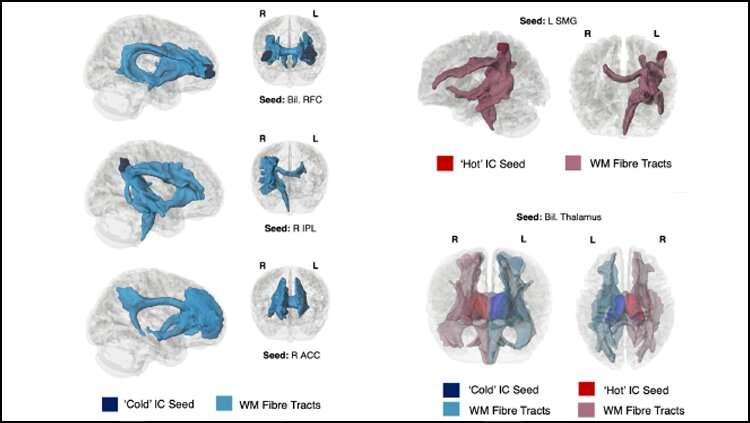How preschoolers' brains develop self-control

As their brain regions linked to self-control mature, preschoolers improve in their ability to stop themselves from doing something, according to new research published in JNeurosci.
A component of self-control called inhibitory control doesn't develop until around age 4. In adolescence and adulthood, inhibitory control stems from a group of brain regions called the cognitive control network, but how the ability develops in young children is not well known.
Berger et al. examined the maturation of brain regions in 3- and 4-year-old children using MRI and compared it with their inhibitory control abilities. To test neutral inhibitory control, the researchers told the children to follow instructions from one sock puppet but ignore the instructions of another. To test emotional inhibitory control, the researchers placed candy in front of the children and told them if they did not eat it now, they would get more later.
The 4-year-olds performed better at both tasks than the 3-year-olds. Children with better inhibitory control had larger brain regions and stronger white matter connections in the cognitive control network. Each type of inhibitory control was tied to the maturation of distinct and separate regions in the network, indicating separate neural bases for different aspects of the development of inhibitory control.
More information: Maturational indices of the cognitive control network are associated with inhibitory control in early childhood, JNeurosci (2022). DOI: 10.1523/JNEUROSCI.2235-21.2022



















